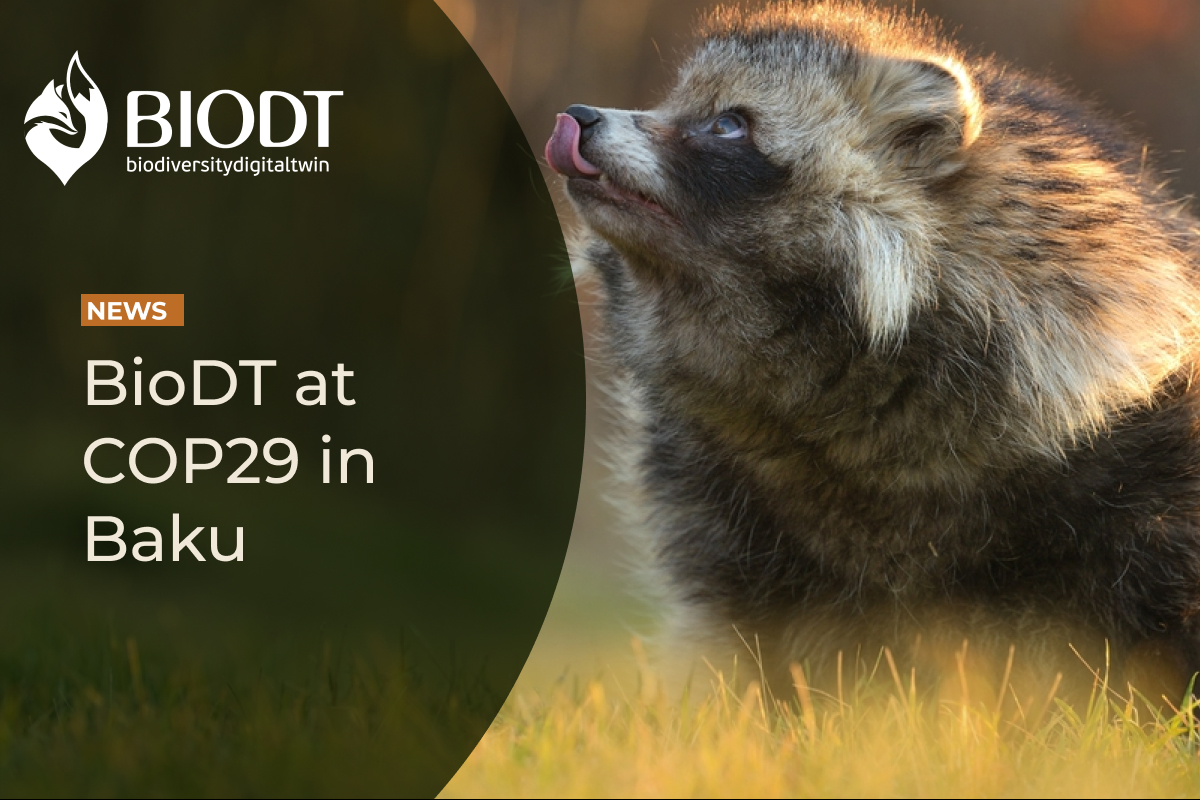
BioDT Representation at UN Climate Change Conference
The Biodiversity Digital Twin (BioDT) project will be making its mark at the upcoming UN Climate Change Conference (COP29) in Baku, Azerbaijan, this November 2024. Tero Aalto, a member of the BioDT team from CSC, will be representing the project at this crucial global event, advocating for the innovative approaches BioDT brings to biodiversity conservation and climate action.
Bridging Digital Innovation and Biodiversity Conservation
BioDT's participation at COP29 underscores the growing importance of digital technologies in addressing global environmental challenges. The project's focus on creating a digital twin for biodiversity aligns perfectly with the European Commission's broader efforts to protect biodiversity both within Europe and globally. BioDT supports new methods of biodiversity conservation by leveraging advanced digital technologies to create detailed, dynamic models of ecosystems.
The European Commission has been at the forefront of numerous initiatives aimed at biodiversity protection. These include the EU Biodiversity Strategy for 2030, the LIFE Programme and Natura 2020 for environment and climate action, and the Horizon Europe research and innovation framework. BioDT's presence at COP29 further emphasises the EU's commitment to integrating cutting-edge technology with environmental conservation efforts.
From New York to Baku: BioDT's Global Impact
BioDT's participation in COP29 follows its successful presentation at the Science Summit for the United Nations Sustainable Development Goals (UN SDGs) in New York City in September 2024. At this summit, BioDT representatives, including Gabriela Zuquim, showcased the project's innovative approaches to biodiversity conservation and management during a dedicated workshop on September 26, 2024.
The New York summit, coinciding with the 79th United Nations General Assembly (UNGA79), provided a platform for BioDT to demonstrate how digital twin technology can revolutionise our understanding and protection of biodiversity. The project's participation in both the New York summit and COP29 in Baku highlights its growing influence in global environmental discussions and its commitment to supporting the UN SDGs.
New UN Conference Paper Highlights Collaborative Efforts
A recently published conference abstract from the UN Conference has shed light on the collaborative efforts of European organisations in advancing biodiversity conservation and sustainable development. This abstract, which aligns closely with BioDT's mission, outlines a network of European organisations coordinating efforts to strengthen science, technology, and innovation in support of the UN Sustainable Development Goals (SDGs).
Key points from the paper include:
- A focus on the Kunming-Montreal Global Biodiversity Framework (K-M GBF) as a testbed for contributing to the SDGs.
- Recognition of indigenous peoples' and local communities' rights and contributions to biodiversity conservation.
- Implementation of multi-disciplinary approaches to improve biodiversity monitoring, management, and protection.
- Commitment to the Convention on Biological Diversity's objectives: conservation, sustainable use, and fair sharing of benefits from natural resources.
- Development of digital twins, such as the European Digital Twin of the Ocean (European DTO), for informed decision-making.
- Promotion of ecosystem-based approaches and collaboration between biodiversity-related conventions and organisations.
- Research into the links between biodiversity and health, including participation in initiatives like the EOSC Health Cluster.
It also highlights the potential for BioDT to contribute to and benefit from these collaborative initiatives as it participates in COP29.
European Leadership in Global Biodiversity and Climate Action
As BioDT prepares for COP29 in Baku, it's important to highlight the European Union's approach to addressing both climate change and biodiversity loss. The participation of EU-funded projects in both COP29 and COP16 demonstrates its commitment to strengthening its voice on the global stage and taking concrete actions to protect biodiversity.
While BioDT is participating in COP29, several other EU-funded projects are contributing to COP16. These include: NetworkNature+ focusing on nature-based solutions for socio-environmental issues; BioAgora; RESPIN; CO-OP4CBD; and Biodiversa+, working on science-policy interfaces for biodiversity. Worth to mention also INTERLACE addressing sustainable urban ecosystems and GoNaturePositive! promoting nature-based enterprises and economic opportunities in conservation.
BioDT's participation in COP29, alongside these projects' involvement in COP16, demonstrates the EU's comprehensive approach to addressing both climate change and biodiversity loss through innovative, technology-driven solutions. The recent UN Conference abstract further reinforces the importance of these collaborative efforts in achieving global environmental goals.